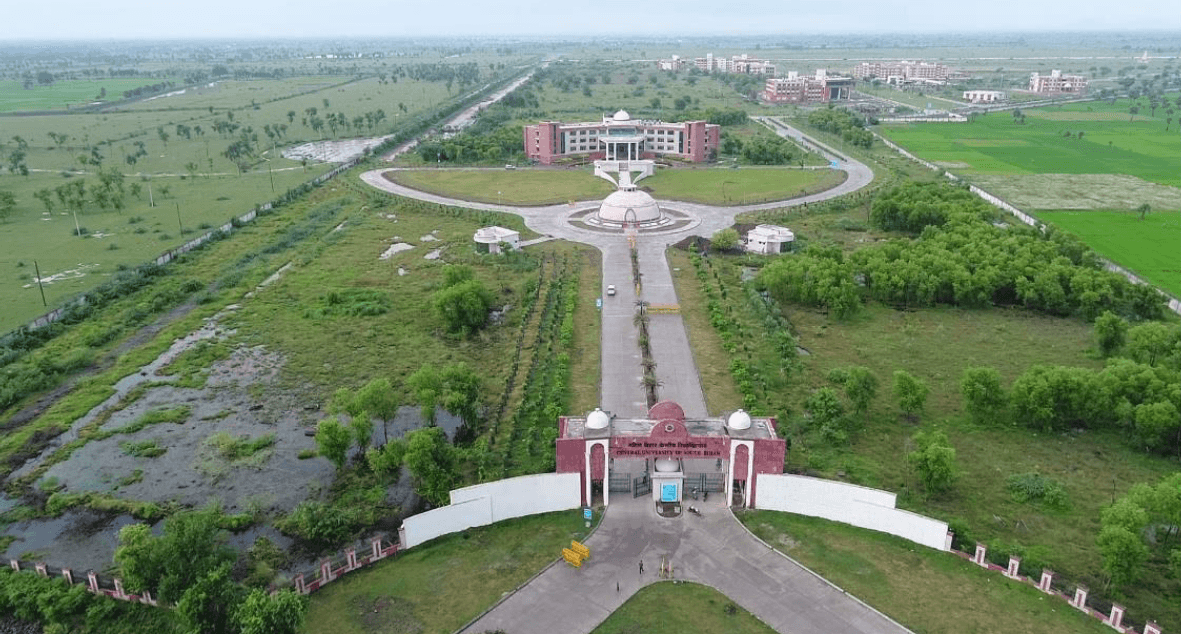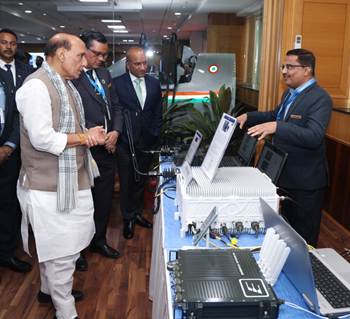
The Central University of South Bihar, Gaya.

By Prof. Kameshwar Nath Singh*
A renaissance of Indian thought and wisdom
It is noteworthy that in India’s intellectual history, particularly dating from 1000 BC to almost 600 AD, the Indian mind was found deeply engrossed with expanding constructivist dimension of Indian thought. Few cultures have been found to exhibit such wide-ranging, structured systems of ideas in almost all spheres of human life as was witnessed in India during this long phase.
The primary reason for the Indian intellectual texts having been saved from the ravages of time, still living and studied, is the fact that there existed a strong element of continuity. Some of India’s most original minds have been commentators on these valuable pieces of intellectual process. This exemplifies the strong feature that underlies an unbroken living oral tradition with a history of more than 5,000 years; the meaning of ‘literature’ for our present purpose has to be extended to mean ‘composition’ to include the works composed and transmitted orally from generation to generation. Starting with the eminent lexicographer Yaaska, in the 5th BCE, even before Panini, through to Kumarila Bhatt, Adi Shankar (7th Century AD) right down to Sri Aurobindo, Mahatma Gandhi, Radhakrishnan, Vinoba Bhave. Thus, the texts of knowledge have been constituted, maintained and transmitted in the oral framework of the Indian history of ideas.
The Indian Knowledge System (IKS), as discovered today, is spread across a broad canvas from ancient textual material and manuscripts in classical Indian languages to folk practitioners, their craft and skills forming a living tradition. They are a storehouse of retrievable information in varied areas like agriculture, architecture, metallurgy, metalworking, textiles, and healthcare systems, besides containing living oral traditions in numerous languages and literature. They also contain rigorous theoretical knowledge ranging from astronomy and mathematics to metaphysics, grammar, logic, literature, and linguistics. This is a cumulative body of knowledge, practice, and belief, containing canonical and dissenting traditions that have evolved by adaptive processes and handed down to generations through a process of cultural transmission.
Notably, while in the Western framework, knowledge is an exercise of power over the individual, in the Indian framework, knowledge is an instrument of the liberation of the individual not from just the superficial, external societal constraints of a collective code, but from the very fundamental, inner, existential constraints of his own mind and self. The goal of knowledge in the Indian tradition, therefore, is so very different. In fact, it is to promote the freedom of the individual.
Significantly, National Education Policy (NEP) 2020 lays a great emphasis on the integration of the Indian Knowledge System and promotion of Indian languages, culture and heritage aiming to bridge the discontinuity in the dissemination of Indian Knowledge by integrating it with curricula at all levels across humanities, sciences, arts, crafts, and sports. The purpose is to explore sets of knowledge claimed in ancient Indian texts, accepting them across domains, and then integrating them with current curricula in the universities.
It is in the context of the above vision of NEP 2020 that the Central University of South Bihar (CUSB), Gaya, has become the trailblazer being the first Higher Educational Institution (HEI) in the state of Bihar in implementing the IKS component in the curricula as envisaged in NEP 2020. The university has made a provision in its Ordinances overarching all its programmes of studies to introduce the courses related to the Indian Knowledge System as Open Elective (OE) /Mandatory Non-Credit (MENC) Courses. These courses introduce the learners to the rich and varied knowledge traditions of India from its hoary past to the eventful present. This also helps the learner to know and understand their own systems and traditions which are imperative for any real development and progress. Also, it helps the learner to think independently and originally with Indian frameworks and models for solving the problems of the present day. In addition to the courses under the basket of OE /MENC, even in each discipline the Indian root/ ancient Indian knowledge in that particular field has been traced and included in the core/core elective courses.
Furthermore, CUSB is drawing up a plan to set up a centre for the promotion of studies and research in IKS. The proposed centre envisages undertaking original research in the area of Indian Knowledge Systems that will guide the development and implementation of programmes for the diffusion of traditional and contemporary knowledge. The purpose of these research endeavours is aimed to develop effective technologies that will help to provide realistic evaluations of local needs, environmental constraints, and production systems based on local resources. Scholars from different backgrounds will be encouraged to participate in the newly proposed Centre’s interdisciplinary research and education programmes, enabling them to evolve practices and technologies in varied areas for sustainable growth and development.
The effort made by CUSB is directed at creating awareness among the students about India’s rich intellectual legacy and to make them feel proud and connect to their culture and appreciate where they come from. The related areas of the Indian knowledge system encompass the disciplines and fields of knowledge that include logic, philosophy, language, technology and crafts, polity, economy and governance, ethics and sociological orders, Architecture and engineering, pure sciences, earth sciences, biosciences, poetics and aesthetics, law and justice, grammar, mathematics, and astronomy, etc.
Conscious of the importance of the languages in which the vast reservoir of traditional Indian knowledge lies stored, the University has revived the Department of Indian Languages under the School of Languages and Literature. For the furtherance of advanced research based on these nuggets of wisdom strewn in these ancient texts, the department will offer courses /programmes in different Indian languages.
To conclude, the solution to creating a new education system suiting the contemporary world scenario lies in the Indian Knowledge Systems alone. Our ancestors have delved deep into human nature and have been able to fathom how it can express itself. Knowledge in this tradition is neither synonymous with information nor is it sensory in its source and is not an instrument either for promoting man’s comfort or for enabling him to exercise power over Nature and men.
*The writer is the Vice Chancellor of the Central University of South Bihar, Gaya.





